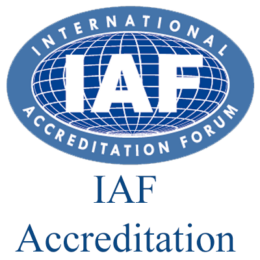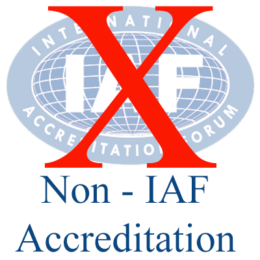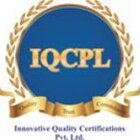
ISO/IEC 42001:2023
Artificial Intelligence Management System (AIMS)
ISO/IEC 42001:2023 is the first international standard for Artificial Intelligence (AI) management systems. It provides organizations with a structured approach to governing AI use, balancing innovation with ethical considerations, risk management, and regulatory compliance. This standard applies to organizations of any size and sector that develop, deploy, or manage AI-based systems.
Benefits of ISO/IEC 42001:2023 – Artificial Intelligence Management System
Connect with Us today
About
ISO/IEC 42001:2023 – Artificial Intelligence Management System (AIMS)
ISO/IEC 42001:2023 is the first global standard for Artificial Intelligence (AI) management systems, offering a structured framework to ensure the ethical, secure, and responsible deployment of AI technologies. It helps organizations manage AI risks, improve transparency, and align AI governance with international best practices.
Clauses of ISO/IEC 42001:2023
Like ISO 9001:2015, ISO/IEC 42001:2023 follows a structured framework, ensuring AI systems are aligned with organizational goals and risk management strategies. The standard is divided into key clauses:
Clause 1: Scope – Defines the purpose and applicability of the standard for AI management.
Clause 2: Normative References – Lists supporting standards referenced in ISO/IEC 42001.
Clause 3: Terms and Definitions – Provides key terms related to AI governance and risk management.
Clause 4: Context of the Organization – Focuses on understanding internal and external AI-related factors affecting operations.
Clause 5: Leadership – Emphasizes top management commitment to AI governance, ethics, and compliance.
Clause 6: Planning – Covers risk-based AI management, compliance strategies, and AI impact assessments.
Clause 7: Support – Includes resources, communication, AI documentation, and personnel training.
Clause 8: Operation – Focuses on AI deployment, monitoring, and continuous risk assessment.
Clause 9: Performance Evaluation – Involves AI performance monitoring, audits, and transparency measures.
Clause 10: Improvement – Ensures ongoing improvements in AI governance, ethical considerations, and compliance.
This structured approach helps organizations integrate AI management with existing standards like ISO 9001 (Quality Management) and ISO 27001 (Information Security), ensuring AI applications align with broader business goals and ethical guidelines
Would you like this content formatted for a brochure, website, or training material?
-
Benefits of ISO/IEC 42001:2023 – Artificial Intelligence Management System (AIMS)
-
Ethical AI Governance – Ensures AI systems align with ethical principles, reducing bias, discrimination, and unfair decision-making.
-
Risk Management – Helps organizations identify, assess, and mitigate AI-related risks, including security threats and unintended consequences.
-
Regulatory Compliance – Assists organizations in adhering to AI-related laws, policies, and global standards, reducing legal risks.
-
Increased Transparency & Trust – Establishes accountability and explainability in AI models, improving stakeholder confidence.
-
Competitive Advantage – Enhances innovation while ensuring responsible AI development, helping organizations stay ahead in the AI-driven market.
-
Seamless Integration with Other Standards – Works alongside existing standards like ISO 9001 (Quality Management) and ISO 27001 (Information Security) for a holistic management approach.
-
Improved AI Performance & Reliability – Ensures AI models function as intended, with continuous monitoring and optimization for better results.
-
Sustainable AI Development – Promotes long-term AI sustainability by focusing on continuous improvement, ethical considerations, and responsible AI lifecycle management.
Would you like a customized version of these benefits for a specific industry or business application?
-
There’s a global federation for all the accreditation bodies worldwide, that regulates these accreditation bodies, which is known as International Accreditation Forum or IAF. The task of IAF is to check any sort of negligence by an accreditation body while implementation of the quality specifications and carrying out the ISO certification process

I am text block. Click edit button to change this text. Lorem ipsum dolor sit amet, consectetur adipiscing elit. Ut elit tellus, luctus nec ullamcorper mattis, pulvinar dapibus leo.
I am text block. Click edit button to change this text. Lorem ipsum dolor sit amet, consectetur adipiscing elit. Ut elit tellus, luctus nec ullamcorper mattis, pulvinar dapibus leo.



















